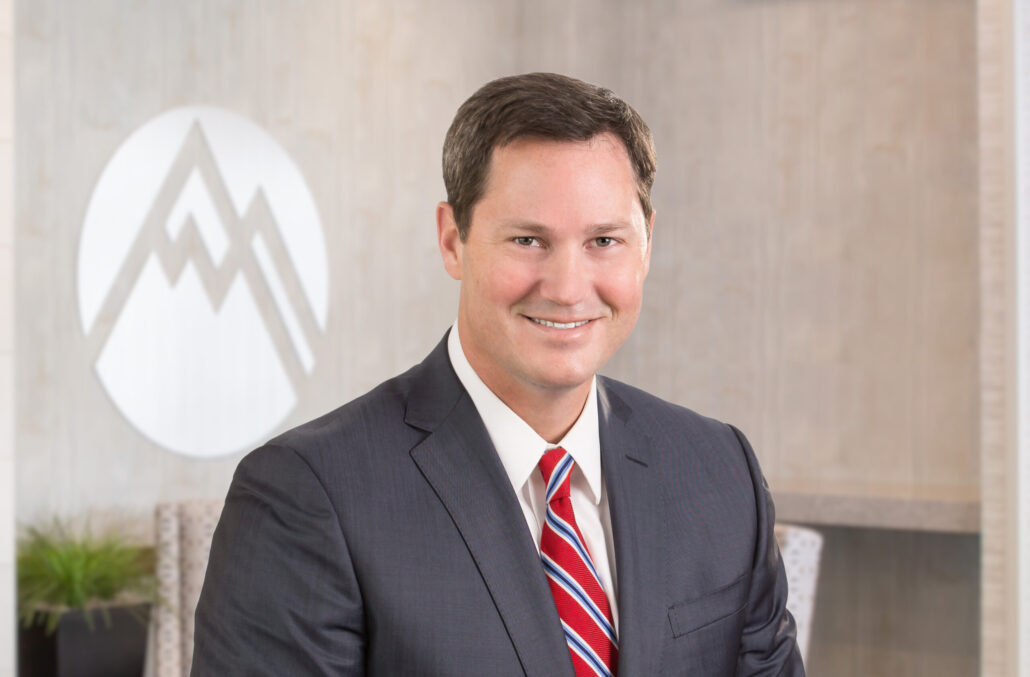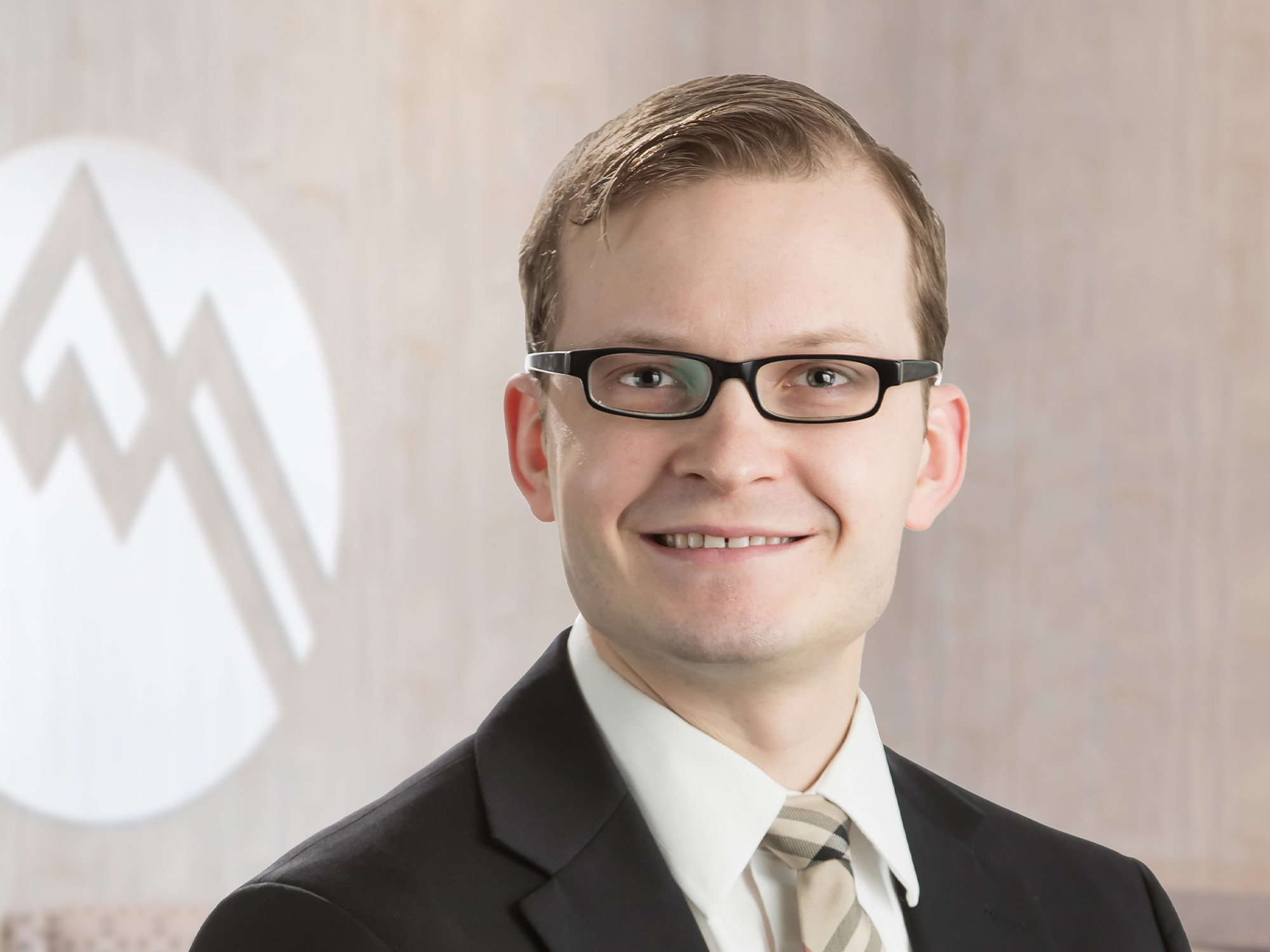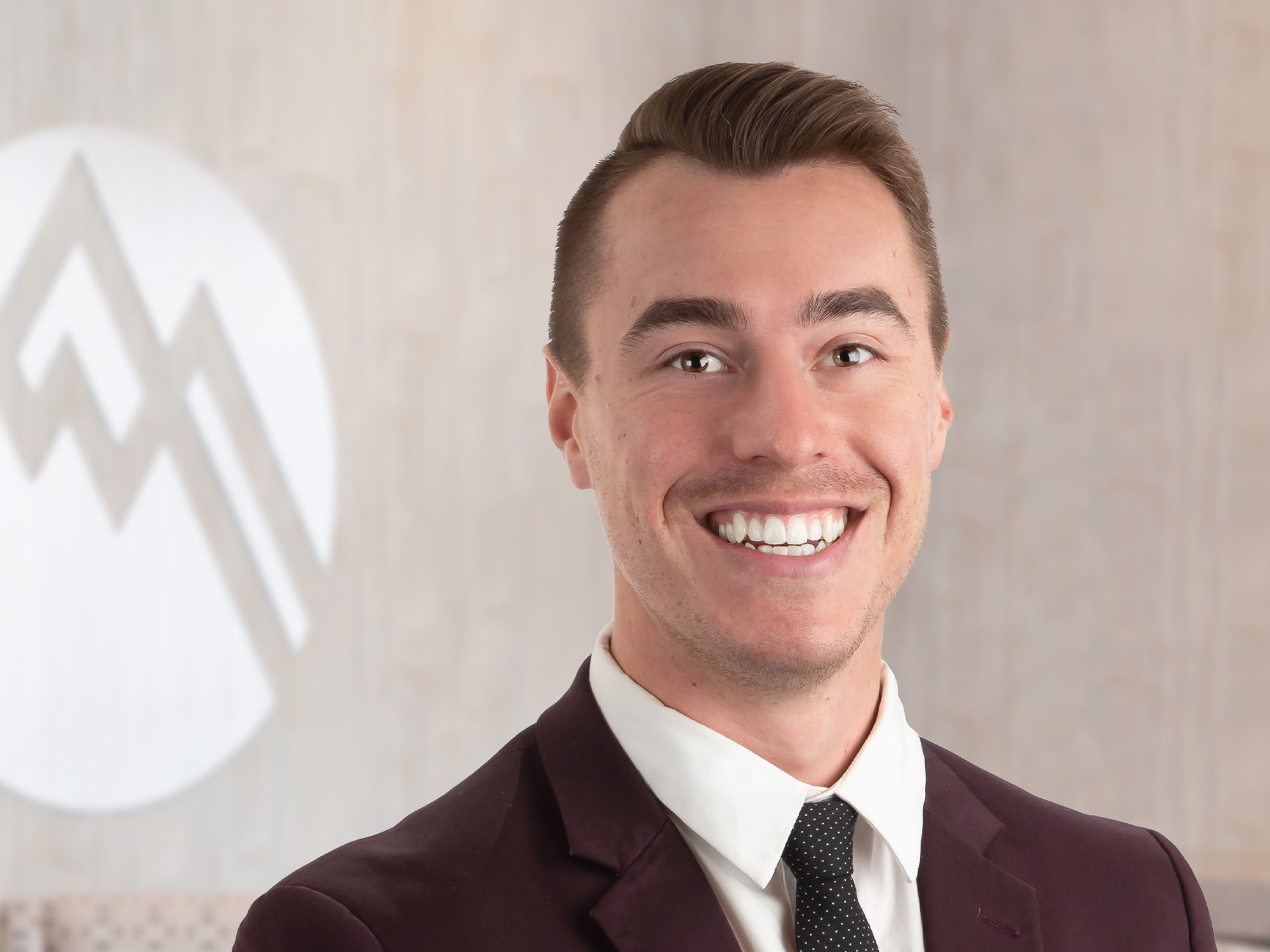Dr. Strothman’s Approach to Care
“Spinal disorders are complex and disabling. As your surgeon I will explain your diagnosis and treatment options, both operative and non-operative, in a way that you can understand thereby allowing you to make informed decisions. I am rewarded daily by improving the quality of life of patients receiving my care.”
Introducing Dr. David Strothman
“I was that kid in high school who always really enjoyed science,” grins Summit Orthopedics spine surgeon Dr. Strothman. “I also loved sports—and broke both legs playing hockey and skiing. The combination of science, sports, and my early experiences with sports medicine care planted seeds that led me to explore the idea of a medical career.”
As a college junior, Dr. Strothman did research with an orthopedic traumatologist at Hennepin County; his work led to a published paper. “It was great experience,” he remembers. “I got to follow people in the OR and hang out with the residents. That’s when I knew I wanted to be in orthopedics.”
Choosing spine as a specialty
During his orthopedic residency, he studied hip and knee replacements, but spine was the area that intrigued him. “It was hard and challenging,” he remembers. “Some people were absolutely incapacitated. You confront a puzzle trying to figure out what is going on and what is causing pain. If you solve the puzzle correctly, you are able to give your patients an absolutely life-changing intervention. Spine was an area where I could really make a difference in people’s lives. That was what I wanted to do.”
Collaboration with nonsurgical spine specialists
As part of Summit’s spine team, Dr. Strothman emphasizes the importance—and singularity—of Summit’s approach to spine care. “If we look at spine care as a whole, 90 to 95 percent of all spine care is nonsurgical. Given that, it’s common sense for spine surgeons like me to work closely in a practice with nonsurgical spine physicians to provide a full range of treatment options for patients who don’t need an operation. We actively collaborate to provide the absolute best nonsurgical care that we can, and when necessary, we also provide the most innovative surgical care.
Discover Summit’s technologically advanced and award-winning spine surgical care
Understanding your options
“I am happy to see any patient with neck or back pain—not just people with confirmed surgical problems,” says Dr. Strothman. “I’ll take your medical history, evaluate your condition, and discuss your options. If you have arthritis, disc wear and tear, or degenerative disease for which surgery is not appropriate, I’m not going to recommend surgery. I’ll suggest that you visit with one of our nonsurgical spine physicians to discuss other avenues that may help you manage a problem that is real and painful and interfering with your life. When surgery is the best treatment for a condition, I am committed to offering comprehensive minimally-invasive spine surgery that minimizes collateral damage to the muscles and tissues around the spine.
Spine Surgery – Expert resources from Dr. David Strothman:
- Understand more about: Guidelines for Evaluating Surgical Risks
Spine Fusion – Helping you make educated decisions – Ask Dr. Strothman:
- Get the answer: What is Spinal Fusion Surgery?
- Learn more: What Is A Minimally Invasive Spine Fusion?
Most satisfying aspect of being a physician
“The great part of my job is that I get to help people every day and make a measurable significant difference in people’s lives,” he says. “I am really proud of the collaborative spine practice model we’ve developed to make sure our patients have access to all of the treatment options spine medicine has to offer. I enjoy my time in clinic with patients and figuring out what’s causing people’s problems. And I really enjoy seeing them get better. That is, bar none, the best.”
Education
Undergraduate Studies
Connecticut College — New London, CT
Medical School
University of Minnesota Medical School — Minneapolis, MN
Residency
University of Minnesota Department of Orthopaedics — Minneapolis, MN
Fellowship
Orthopedic Spine
Twin Cities Spine Center — Minneapolis, MN
Professional Memberships
- Minnesota Orthopaedic Society (MOS)
- American Academy of Orthopaedic Surgeons (AAOS)
- Society for Minimally Invasive Spine Surgery (SMISS)
- North American Spine Society (NASS)
Certifications
- Board Certified: American Board of Orthopaedic Surgery
Awards
- Voted a “Top Doctor” in Mpls.St.Paul Magazine: 2020–2024
- Mpls.St.Paul Magazine Rising Star recognition: 2017
Research
Dr. Strothman has multiple ongoing research interests in the field of spine surgery, including minimally invasive transforaminal lumbar interbody fusion, minimally invasive lumbar decompression, degenerative spondylolisthesis, adjacent segment degeneration, and the use of intra-operative 3-dimensional imaging.
Conditions We Treat
Specialties
Common Treatments
Other
- Minimally invasive spine surgery
- Cervical, Thoracic, and Lumbar Spine Disorders
- Adult Scoliosis
My Team
My Team
At Summit, each physician works alongside a team of professionals to care for you, our patient.
Locations
Reviews
replace_with_js
Survey feedback for replace_with_js
04/16/2025
Reviews
Articles
Resources
Resources
Patient Education
Spine Animated Conditions and Treatments Library
Publications
- Strothman D, Templeman D, Varecka T, Bechtold J. Retrograde Nailing of Humeral Shaft Fractures: A Biomechanical Study on Its Effects on the Strength of the Distal Humerus. Journal of Orthopedic Trauma 2000;14:101-104.
- Van Heest, AE and Strothman D. 2009. Wrist arthrodesis in cerebral palsy. J Hand Surg Am. 34:1216-1224.
- 2011 Strothman DH, Schwender JD: “Ch.57 – Minimally Invasive Posterior Lumbar Instrumentation” IN Rothman-Smeone: The Spine. Edited by: Harry N. Herkowitz, MD, Steven R. Garfin, MD, Frank J. Eismont, MD, Gordon R. Bell, MD and Richard A. Balderston, MD. Published by Copyright © by Saunders, an imprint of Elsevier Inc 2011.
- 2011 Strothman DH, Schwender JD: “Ch. 53 – Mini-Open (Wiltse Approach) Decompression/Fusion” IN Advanced Reconstruction: Spine, Edited by Jeffrey C. Wang, MD. Published by AAOS 2011.



